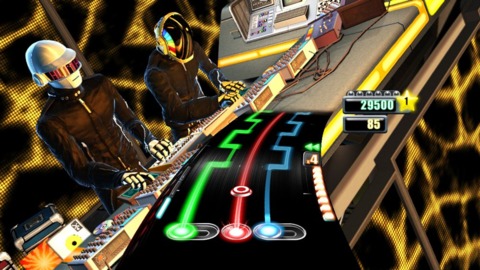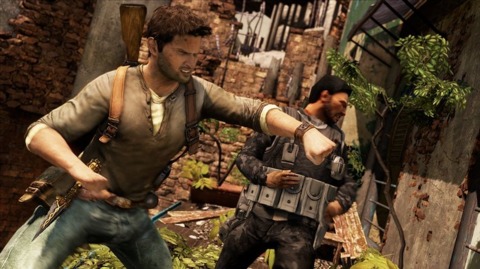Casual bubble deflating game industry - Analysts
EEDAR's Jesse Divnich, Wedbush Morgan's Michael Pachter say weak October sales due to nontraditional gamers not returning to retail, hardware price cuts giving fleeting lift; Activision CFO concurs.
True to analysts' predictions, the gaming industry was not able to lure consumers in increasing numbers to retail in October. As detailed in The NPD Group's US retail sales report yesterday, industry sales were down a cringe-inducing 19 percent from October 2008 to $1.07 billion. Hardware took a particular thumping, dipping 23 percent to $381 million, while software slipped a greater-than-expected 18 percent to $573 million.

According to a pair of analysts, October sales indicate that casual gamers are largely at fault for the continued decline in industry sales. As noted by Electronic Entertainment Design and Research's Jesse Divnich, casual gamers haven't returned to buy more gaming goods this year. Further, he believes this group will continue to stay away until the arrival of new hardware from platform manufacturers, such as Microsoft's Project Natal or a new DS from Nintendo.
"The lack of sales continues to be driven down by non-traditional and casual gamers who have failed to make follow-up purchases," he said. "We believe it will take the introduction of some new style of gameplay or peripheral before we see a resurgence in the casual and non-traditional markets, which is why we strongly believe that Nintendo may launch a successor to the Nintendo DS in late 2010. Additionally, we believe Project Natal will create a resurgence in excitement for motion-based gaming, not just among the core market, but casual and non-traditional gamers as well."
Wedbush Morgan Securities' Michael Pachter concurs, pointing to the continued weakness of the rhythm-game genre. "The more mass market titles did not perform as well, with the music genre demonstrating the overall weakness we've seen all year. Total music game sales in October (including the newly-launched DJ Hero) totaled only $46 million, compared to $121 million a year ago. The decline in music genre sales was responsible for 60% of the year-over-year sales decline in October."
The analysts' opinions echo sentiments expressed by Activision Blizzard CFO Thomas Tippl. At the BMO Capital Markets 17th Annual Digital Entertainment Conference yesterday, Tippl said, "Longterm growth prospects for interactive entertainment are intact despite the near-term macroeconomic headwinds from a weak consumer and a deflating casual games bubble. While we acknowledge the recent trends that suggest shorter retail product lifecycles for more casual products, we also see a thicker and more profitable tail developing on our core franchises with the core audiences."

With games like DJ Hero and Guitar Hero 5, Activision has stood at the forefront of the rhythm game genre, which has traditionally appealed to the casual and nontraditional gamer crowd. According to Pachter, the music genre contributed to 60 percent of the year-over-year sales slip in October.
Some companies still see opportunities in the casual space. Earlier this week, GameStop announced it had acquired a majority interest in casual gaming portal Jolt Online. Shortly before saying it would be laying off some 1,500 employees, EA announced Monday that it had acquired social gaming specialist Playfish for $275 million.
Divnich and Pachter also addressed the continued weakness in hardware sales, which were expected to see a substantial uptick following price reductions of the Xbox 360, PS3, and Wii. "We thought that the console price cuts in September would spark demand for next generation consoles (which had tracked down 38 percent in the five preceding months)," Pachter said in his note to investors. "However, we were disappointed that the strength in console sales was short-lived, with a year-over-year decline of 21 percent in October."
"We believe these declines represent a current video game economy that is driven by promotions, discounts, or temporary sales," Divnich said in his own note. "Once the excitement of a bundle, discount, or permanent price drop retreats, so do sales." The analyst went on to note that the Wii will likely continue to lead sales for the remainder of the year, with "PlayStation 3 sales declining much faster post-price drop than the Xbox 360."
On the bright side for Sony, Divnich believes that the PS3's new marketing campaign has been a factor in the console's recent resurgence. "I would rank these new PlayStation 3 commercials among the best in the entertainment industry and I have no doubts that the recent boost in PlayStation 3 sales can be attributed to more than just the price drop," he said. "I believe these entertaining and informative commercials have played a large role in driving sales."
Got a news tip or want to contact us directly? Email news@gamespot.com
Join the conversation